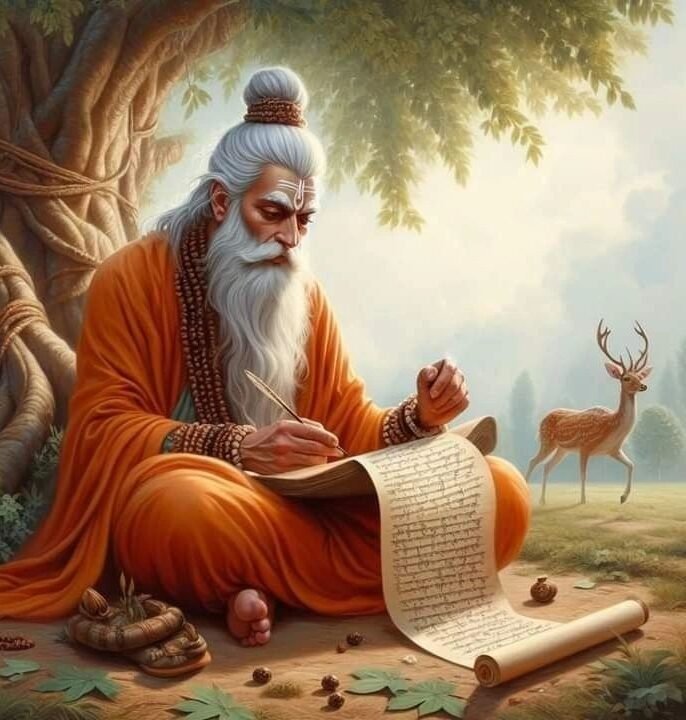Explore Gotras

Keshava: A Revered Figure in Hindu Tradition
Keshava is a prominent name in Hindu mythology and spiritual teachings, commonly associated with one of the many names of Lord Vishnu, the Supreme Being in Hinduism. Keshava is regarded as the protector of the cosmos, and his name symbolizes beauty, power, and divine wisdom. His importance in various scriptures and epic stories makes him a revered figure for devotees and scholars alike.
1. Origins and Lineage
- Keshava in the Divine Tradition:
- Keshava is primarily known as one of the many names of Lord Vishnu, the preserver and protector of the universe in Hindu cosmology. As per the Puranas and Vedic texts, the name Keshava refers to Vishnu in his many forms, including his incarnations such as Krishna, Vamana, and others.
- Keshava in the Divine Tradition:
- Parents:
- As Lord Vishnu’s name, Keshava is said to be born of Devaki and Vasudeva in the Yadava dynasty (as Krishna), which signifies a divine lineage rather than a mortal one. However, Keshava’s form as Vishnu predates this incarnation, existing as a timeless deity beyond human genealogy.
- Parents:
- Association with Vishnu’s Avatars:
- Keshava is one of the most powerful and revered names of Lord Vishnu, embodying divine attributes of creation, sustenance, and destruction. As Krishna, Keshava plays a central role in the Mahabharata, especially in the Bhagavad Gita, where he serves as the spiritual guide and charioteer to Arjuna.
- Association with Vishnu’s Avatars:
2. Keshava’s Role in Hindu Mythology
- Keshava as Vishnu:
- In Hindu mythology, Keshava is primarily associated with Lord Vishnu, who incarnates in different forms to restore cosmic balance. Keshava is revered for his intervention during times of chaos and his role in upholding Dharma.
- Keshava as Vishnu:
- Role in the Bhagavad Gita:
- As Krishna, Keshava’s teachings in the Bhagavad Gita are central to understanding life, duty, and spiritual wisdom. Krishna’s guidance to Arjuna on the battlefield of Kurukshetra encapsulates the essence of righteous living and devotion to God.
- Role in the Bhagavad Gita:
- Keshava as the Divine Protector:
- Keshava’s influence in mythological texts often highlights his role as a protector of the universe and a savior of the righteous. His actions in various incarnations, such as his battle with the demon Kamsa and his role in Kurukshetra, emphasize his duty to restore balance between good and evil.
- Keshava as the Divine Protector:
3. Keshava’s Contribution to the Vedic Tradition
- Vishnu and the Vedic Knowledge:
- Keshava, as an incarnation of Vishnu, is central to the Vedic knowledge that governs the universe. His name embodies the principles of balance and order within the cosmos. The worship of Vishnu through the name Keshava is considered an important part of spiritual practice for devotees of Vaishnavism.
- Vishnu and the Vedic Knowledge:
- Teachings on Dharma and Devotion:
- Keshava’s teachings, especially through his form as Krishna, emphasize Dharma (cosmic law), Bhakti (devotion), and Karma (action). His guidance to Arjuna in the Bhagavad Gita has shaped much of Hindu philosophy, with a focus on selfless service, faith in God, and the pursuit of truth.
- Teachings on Dharma and Devotion:
4. Keshava’s Role in Hindu Tradition
- Role as a Divine Guide:
- Keshava, through his various incarnations, serves as a guide to humanity, helping individuals navigate life’s challenges with divine wisdom. His role in the Bhagavad Gita as a teacher and spiritual mentor underscores the importance of following divine principles.
- Role as a Divine Guide:
- Devotional Practices:
- The worship of Keshava is fundamental to many Vaishnavite traditions. His name is invoked in prayers, mantras, and rituals. Devotees chant the name Keshava to seek his protection, guidance, and blessings in their spiritual journey.
- Devotional Practices:
5. Keshava’s Legacy in Hinduism
- Keshava and the Vaishnavism Tradition:
- Keshava is a central figure in the Vaishnavite tradition, which worships Vishnu and his incarnations as the supreme deities. His divine wisdom, power, and the principles he taught in his incarnations have shaped Vaishnavism and its practices for centuries.
- Keshava and the Vaishnavism Tradition:
- Cultural and Spiritual Influence:
- Keshava’s legacy is reflected in the countless temples dedicated to Lord Vishnu and his forms, as well as in the daily worship practices of millions of Hindus. His name and teachings continue to inspire devotees, philosophers, and spiritual seekers.
- Cultural and Spiritual Influence:
6. Keshava’s Influence in Hinduism
- Spiritual and Philosophical Impact:
- Keshava’s role as a divine figure has had a profound impact on Hindu philosophy. His teachings stress the importance of detachment, faith, and the surrender of ego. His influence is visible in Hindu devotional practices and in the way individuals approach their relationship with God.
- Spiritual and Philosophical Impact:
- Keshava’s Role in Rituals and Worship:
- The worship of Keshava is integral to Vedic rituals and temple practices. His name is used in prayers and mantras to invoke his divine presence and blessings. Chanting his name brings spiritual upliftment and strength to those who seek his grace.
- Keshava’s Role in Rituals and Worship:
7. Conclusion
Keshava is an important name that refers to Lord Vishnu, the Supreme God in Hinduism. His many incarnations, such as Krishna, serve as guiding lights for devotees who seek spiritual wisdom, moral guidance, and devotional practice. Keshava’s contributions to Vedic knowledge, his teachings on Dharma and devotion, and his enduring presence in Hindu rituals make him a central figure in Hindu tradition and spiritual life. Through his wisdom, divine grace, and sacrificial actions, Keshava continues to inspire millions of people in their journey of faith and spirituality.
